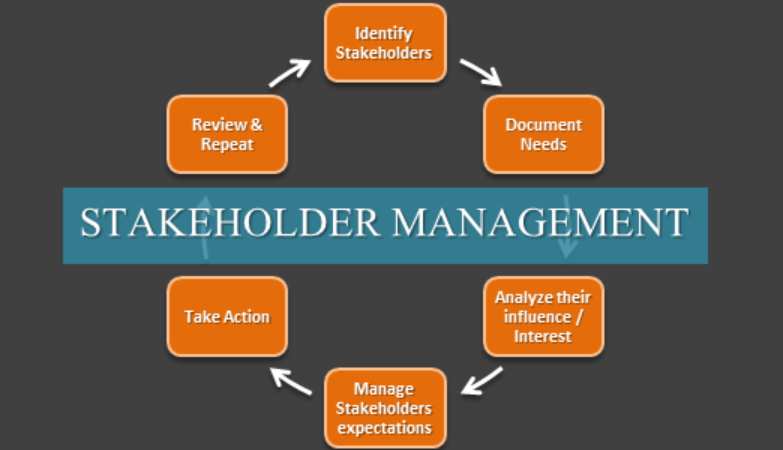It is well known that software project management is integral in software engineering that oversees the entirety of a project lifecycle. Usually, it involves critical processes such as:-
- The planning of the project
- Project execution
- Tracking of the project
The cool thing about this process is it ensures successful software development. It's obvious that effective management contributes directly to the efficient delivery of software projects.
It is apparent that key subsets of software project management comprised of:-
- Resource management
- Management of risk
- Change management.
It is a well-established fact that they assist in streamlining project delivery, minimizing complications, etc. Moreover, it is important to mention that elements like conflict management, and release management play essential roles in maintaining team harmony. It’s just fascinating how they work collectively to enhance the software project's quality!
Introduction to project management in software Engineering
It is evident that software project management is a crucial aspect of software development, and, predictably, it encompasses the entire project lifecycle; from project planning to delivery.
The noticeable thing is it involves a host of activities like software configuration management, and project tracking. Consequently, the role of a software project manager is to guarantee that the user requirements are met.
Defining project management in the context of software Engineering
It is crucial to highlight that project management in the context of software engineering refers to the process of planning, executing, tracking, and delivering software projects.
It is an essential discipline as it ensures the successful completion of software development through the effective utilization of resources, and handling of user requirements. Key elements include:
- Project Planning: Defines the roadmap for accomplishing the project goals
- Execution of the project: Implementation of the plan according to the defined strategy
- Project Tracking: It monitors the progression of tasks to ensure they're on schedule
Furthermore, it is worth noting that areas like risk management, change management, and conflict management are also encompassed.
The importance of project management in software Engineering
It's no secret that project management is central to software engineering as it governs software development right from project planning.
What’s amazing is it ensures apt resource management and adherence to user requirements during the project lifecycle.
The noticeable thing about precisely executed software project management is it can also mitigate potential risks. It’s just astounding how this makes sure that software projects are delivered on time without overshooting budgets!
One thing is for sure: A robust project management process maintains the integrity along with traceability of a product's configuration.
Key principles of project management in software Engineering
To successfully manage a project in software engineering, understanding the set of defined objectives and deliverables is a critical first step. This concept is explored more in-depth in our article on project scope. Recognizing the project's scope ultimately helps teams in organizing tasks, setting timelines, and allocating resources more effectively.
In software engineering, generally, successful project management relies on the following things:-
- Well-defined project planning
- Efficient project execution
- Effective project tracking
It has been observed that during the project lifecycle, software project management ensures that all user requirements are met. What's worth mentioning is conflict management is employed throughout the project, while release management guides the deployment of software projects.
Particularly, the entire process is underpinned by software configuration management.
Planning and defining scope
It’s an obvious thing that planning and defining scope stage is a critical part of software project management. Typically, key activities involve:
- Crystallization of user requirements
- Setting milestones for project delivery
- Outlining the project lifecycle
The surprising thing about these undertakings is it makes sure coherent project planning and execution. Integral components of this stage also include risk management and resource allocation.
Moreover, change management proves crucial to adapt to new circumstances. It's no secret that software configuration management keeps track of various versions of software projects during development.
Time management and scheduling
What’s remarkable is time management and scheduling processes involve the organization and allocation of tasks throughout the project lifecycle.
Commonly, efficient scheduling enables effective project planning and timely project delivery. \
There is no doubt that resource management also plays a substantial role, involving the competent distribution of responsibilities among team members.
Other vital elements include project tracking for performance assessment, risk management to address potential pitfalls, etc. The best thing about this comprehensive approach is it guarantees a smooth software development process.
Cost estimating and budgeting
In software project management, it's a matter of fact that project planning accounts for cost estimating and budgeting during the project lifecycle.
Mainly it ensures resources are efficiently distributed for tasks associated with software development. This optimizes project execution.
Plus, key processes like conflict management are critical considerations in budget allocations.
Additionally, it is beneficial to remember that cost implications of software configuration management and release management are factors to be diligently factored during project tracking to assure cost and resource management effectiveness.
Quality assurance
One thing is clear: Quality assurance plays a crucial role in software project management, commonly, during the project lifecycle.
It contributes significantly towards project planning, and most importantly, project delivery.
The cool thing about our dedicated QA team is it makes certain that all software projects are double-checked and comply with all user requirements. Predictably, they take care of release management and software configuration management – crucial in maintaining consistent quality throughout all our software development processes.
Risk management
It's no secret that in software project management, risk management is integral in every phase of the project lifecycle.
What’s notable is it involves the identification, evaluation, and mitigation of risks that may affect project planning and execution. Interestingly, this involves managing unpredicted complications from user requirements or software development, and implementation of changes necessary to prevent project delivery delays. It is vital to note that key risk management strategies include:
- Change management: Implementing changes systematically to minimize disruption.
- Conflict management: Addressing disagreements proactively so that it can be ensured that project tracking proceeds smoothly
- Software configuration management: The systematic control of changes for maintaining software system integrity
Project management methodologies in software Engineering
It is apparent that in software engineering, project management methodologies are crucial for efficiently handling software projects. These methodologies, detailed in our project roadmap, also include project tracking and project delivery which is crucial for timely and successful outputs.
Furthermore, risk management along with the management of conflict is integral for navigating project uncertainties and challenges. The beneficial thing about techniques for resource management is they make certain optimal use of resources.
Waterfall model
It is a well-established fact that the Waterfall Model is a traditional approach to software development, critically used in software project management.
What’s fascinating is it utilizes a linear and sequential methodology in which each phase of the project lifecycle. Its simplicity, clarity of stages, and strict order make it suitable for small and well-defined software projects.
It, however, restrains changes and revisions once the project is underway. The sad thing is it limits flexibility. Notably, it necessitates a comprehensive and clear understanding of user requirements before commencing the project.
Agile methodology
It is generally agreed that Agile Methodology is a key approach in software project management that emphasizes flexibility and interactivity to deliver finalized software projects.
Unlike traditional approaches, Agile focuses on iterative project planning, project execution, as well as constant tracking of the project throughout the project lifecycle.
Generally, this system mainly targets software development to evolve user requirements and solutions through a collaborative effort!
The great thing about Agile is it entails principles such as change management to adjust quickly to any changes.
Scrum framework
There is no denying that the Scrum Framework is a holistic approach to software project management that has been designed to deliver high-quality software products swiftly and efficiently.
One notable thing that is central to the framework is the project lifecycle, which is broken down into sprints for more efficient planning and execution.
Surprisingly, throughout this process, several key aspects are managed closely to ensure project success.
Specifically, it is vital to recognize that risk management strategies are implemented to identify and mitigate potential pitfalls.
It's worth noting that resource management is employed to assure the best possible use of available resources. It is beyond question that release management is used to plan, schedule, and control the build, test, and deployment of releases.
What’s amazing is the Scrum framework prioritizes user requirements to create software solutions. It’s just astonishing to find out it truly meets the needs of end-users!
Role of a project manager in software Engineering
In modern project management in software engineering, it is crucial to understand the stakeholders' needs and to take into consideration the detailed requirements of the project. Broadly speaking, project management gives a structured approach to making the software delivery more predictable, manageable and to achieve the desired outcome. It is an integral part of software engineering and plays a vital role in the success of the project.
There is no doubt that the project manager plays a pivotal role in software engineering. The noticeable thing is they ensure the smooth execution of software project management through each stage of the project lifecycle.
Key responsibilities include setting user requirements, and driving project delivery within set deadlines and budget.
It's crucial to be aware that they oversee resource management, ensuring optimal allocation of human and technical resources. At the same time, they manage risks, conflicts, and changes in the project.
It comes as no surprise that project managers are also involved in release and software configuration management. Interestingly, this guarantees the software projects meet set quality standards.
Leadership and team management
It's evident that effective leadership and team management play a crucial role in software project management. Definitely, the leader should proficiently handle project execution, project tracking etc.

It is vital to note that leaders are in charge of ensuring that user requirements are upheld.
As a leader, addressing issues promptly will ensure an on-time project delivery of software projects. The best outcome of doing this is it will promote effective software development.
Indeed, there is no denying that the role of leadership can significantly influence the outcome of projects.
Communication and stakeholder management
It is widely recognized that in software project management, communication and stakeholder management play a significant role throughout the project lifecycle. What’s notable is effective communication ensures seamless project planning, execution, and project delivery.

To add on, it aids in change management, risk management, and resource management. The cool thing is it enables all stakeholders to stay aligned with the project's goals and user requirements.
Plus, it's crucial to highlight that strong stakeholder management can help in conflict management and software configuration management, Hence, both communication and stakeholder management are crucial elements in software projects together with software development.
Problem solving and decision making
It goes without saying that problem-solving and decision-making are central to software project management.
From the initial stages of project planning and understanding user requirements, up until the project delivery, it is generally agreed that the software development teams must navigate through risks and changes.

Inarguably, effective resource management also plays an integral role in achieving a smooth project lifecycle. Equally vital is conflict management, which helps keep the team’s morale high and the project on track.
Project management tools in software Engineering
Software engineering projects often require efficient project management methods. To further understand this, you can read more about how project tracking plays a vital role in successful project implementation. This will allow you to appreciate the importance of steady monitoring and evolution of development processes.
Project management in software engineering involves various aspects, such as scheduling, cost estimation, and capacity planning. Understanding capacity planning is key to ensuring optimal use of resources and timely project delivery. Therefore, incorporating it into the project management approach is essential for success.
In the course of implementing project management principles in software engineering, one may need to employ specific tools. One such indispensable tool is a marketing agency billing software which simplifies invoicing and billing processes. With proper resource allocation and time management, these tools can be instrumental in streamlining the workflow and ensuring the success of the project.
It is a well-established fact that in software engineering, project management tools are essential for enhancing the efficiency and success of software projects. With the advent of specialized digital agency time tracking software, these tools have become even more effective and user-friendly.
Certainly, these tools assist in various stages of software development that include the following:-
- Planning of the project
- Project execution
- Project delivery
It is beyond dispute that they play a crucial role in numerous tasks such as: resource management, risk management etc. Take the example of tools for project tracking; it can monitor the progress of the project lifecycle.
Similarly, software configuration management tools ensure that user requirements are aptly met.
Bonsai: best project management software

Bonsai stands out as the best project management software, offering a seamless blend of functionality and simplicity. Bonsai excels as a project management software by understanding the critical role it plays in software engineering. It facilitates meticulous planning, resource allocation, and progress tracking, ensuring that software projects are delivered on time and within budget.
Microsoft Project: a comprehensive solution
It is evident that Microsoft Project is a comprehensive solution for managing software projects; and that too from inception to delivery! The outstanding thing about this software development tool is it aids in various aspects of software project management. Notably, it supports users through every stage of the project lifecycle. Some key features of Microsoft Project include:
- Risk management
- Resource management
JIRA: an Agile-friendly tool
There is no doubt that JIRA stands as a vital asset in handling software projects. What’s remarkable about this tool is it has been specifically designed to streamline project planning, and tracking throughout the project lifecycle. It provides crucial functionalities to meet user requirements.

Moreover, JIRA can play a significant role in risk, change, and release management.
One thing is proven: It aids in streamlining software configuration management. As a consequence of that this makes it a comprehensive choice for effective software development.
Trello: simplifying task management
Trello makes software projects– from project planning to project delivery as easy as pie. The amazing thing about this tool is it helps in various phases of the project lifecycle.

Easing the complexities of software development, it provides features like change management, and software configuration management.
It is imperative to note that this tool helps in the precise capturing of user requirements.
Conclusion: the impact of effective project management on software Engineering
Software engineering involves an intricate process that ends with project closure, which is the final stage signaling the completion of the project. It's a stage that involves plenty of documentation and assessment of the software product to ensure it has met the outlined objectives. A comprehensive knowledge of project closure is necessary to effectively conclude any software engineering project.
It's a matter of fact that the influence of effective project management on software engineering is substantial.
With the appropriate application of software project management, the good news is the project lifecycle can be efficiently managed.
Note that essential areas such as resource management, and conflict management are optimized. Notably, it’s beyond dispute that project tracking, and software configuration management help to meet the user requirements accurately. The amazing thing about this is it refines the overall software development process.







